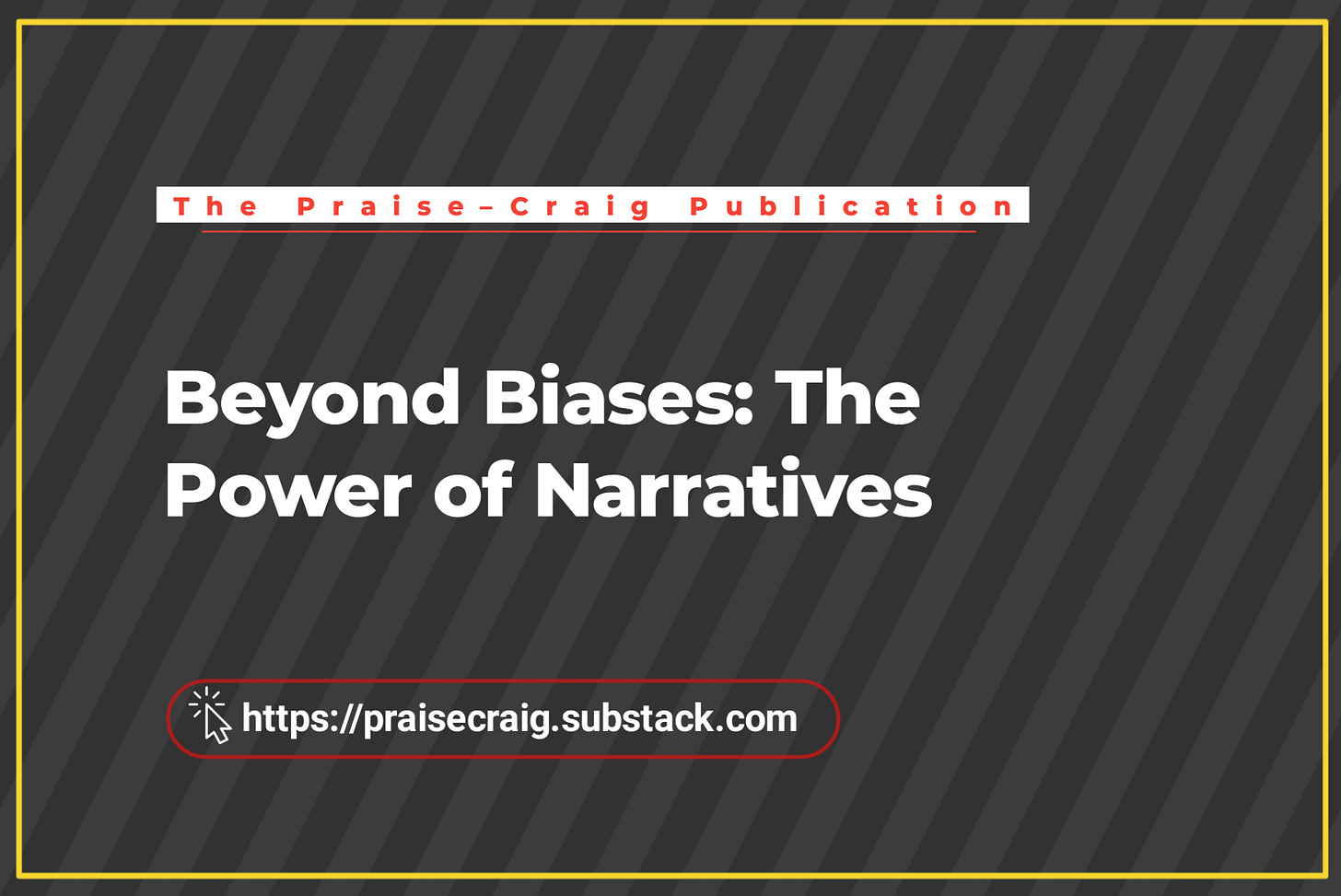Everything around you is fueled by a common theme.
The idea that things should be done in a particular style or way;
Or that you should strive to live up to a particular standard;
Or that idea that you should focus on certain things that help you earn more status in your social circle and make a stake in it.
This common theme is stringed in what is called NARRATIVE. It is what makes a conversation with a friend count or not. It's what (at least) justifies how we choose to interact with our reality and the things we just make up.
Around last year, a younger friend approached me.
During our "catch up with you" chat, he mentioned something about what we had both heard and wondered why it is hard for some adults to understand that this generation is different from the previous generation.
He wondered why this set of people are very quick to dismiss anything that they're not familiar with or that means something else in their time, as evil, sinful, or too extreme.
I recall telling him that, it's not their fault. Though I'm sometimes pissed off by the fact that this set of older generation is quick to shoot down things because of their biases–which is a common human problem.
Moreover, I cleared it to him how culture affects us, and what effect can disruption have on culture. If you remember clearly, in your primary classes, culture is the way of life. It holds things together. And any attempt to defy what has been bound together is bound to be frowned upon.
As much as the human body constantly experiences change, we don't like change that very much, because it's difficult and stirs up our already adjusted rhythm of living. It takes a different mindset to be able to welcome this anomaly.
There are three types of people in a community
1. The ones that don't what things to change. They prefer the comfort of familiarity and are often hesitant to embrace new ideas or approaches.
2. The ones that want to do what everyone is doing. Some seek validation through conformity, desiring to align themselves with what everyone else is doing.
3. The ones that wants to experience something new. We encounter those who are open to new experiences, eager to explore uncharted territories, and push boundaries every time we look at how far we've come.
Depending on the conversation on ground, most people belong to all these three. And that is as a result of a narrative that they've bound themselves with.
However, as we continue to navigate this ever-evolving landscape of change, the narratives we carry around determines our human experience, so, it is important you recognize the significance of narrative and how predominant influence it has on our perspectives.
Fostering open-mindedness, empathy, and a willingness to explore new ideas and innovations while respecting the values that bind us together, we can forge a path towards a more harmonious coexistence.
Thank you for being a part of The Praise–Craig Publication community. I hope these insights have stimulated your thoughts and enriched your understanding about the world around us. Stay tuned for the next issue, where we will explore more intriguing topics and continue the journey of learning together.
Talk to you soon,
– Praise–Craig IGHOMI
PS: If this newsletter(or article) meets you well, feel free to ask your question. You might just be surprised to see me write about it. Just hit reply if you're getting this in your mailbox.
PSS: Sharing is caring. . . kindly remember to share The Praise-Craig Publication with anyone you feel needs to see this!
PSS: Join my Telegram conclave to get updates on my podcast episode and other content I'd be curating in the future.





